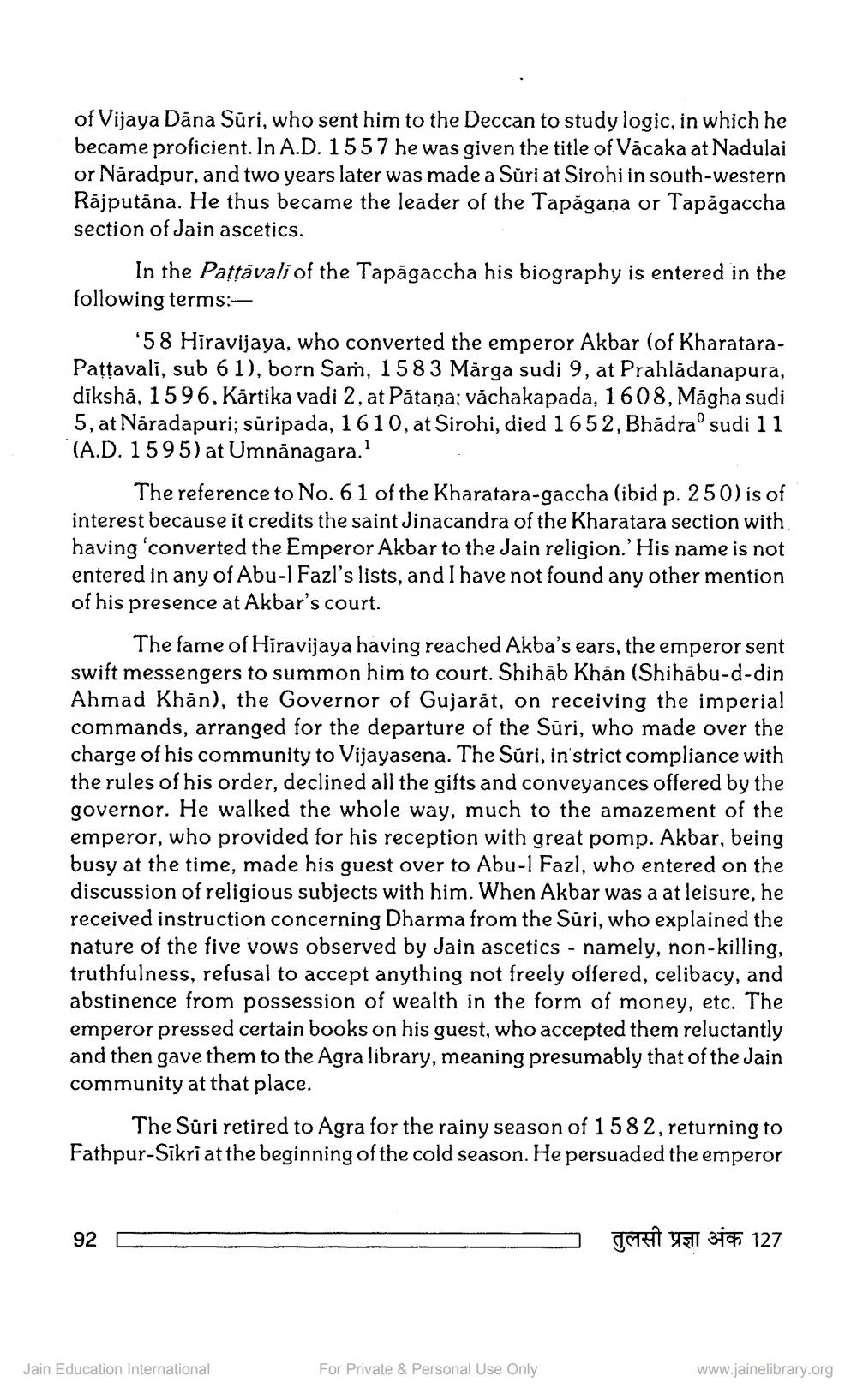________________
of Vijaya Dāna Sūri, who sent him to the Deccan to study logic, in which he became proficient. In A.D. 1557 he was given the title of Vacaka at Nadulai or Nāradpur, and two years later was made a Súri at Sirohi in south-western Rājputāna. He thus became the leader of the Tapăgana or Tapăgaccha section of Jain ascetics.
In the Pattāvali of the Tapāgaccha his biography is entered in the following terms:
*58 Hiravijaya, who converted the emperor Akbar (of KharataraPațțavali, sub 61), born Saṁ, 1583 Märga sudi 9, at Prahladanapura, dikshā, 1596, Kārtika vadi 2, at Pătaņa; váchakapada, 1608, Mágha sudi 5, at Nāradapuri; sūripada, 1610, at Sirohi, died 1652, Bhadrao sudi 11 (A.D. 1595) at Umnānagara.'
The reference to No. 61 of the Kharatara-gaccha (ibid p. 250) is of interest because it credits the saint Jinacandra of the Kharatara section with having converted the Emperor Akbar to the Jain religion.' His name is not entered in any of Abu-l Fazl’s lists, and I have not found any other mention of his presence at Akbar's court.
The fame of Hiravijaya having reached Akba's ears, the emperor sent swift messengers to summon him to court. Shihab Khăn (Shihābu-d-din Ahmad Khan), the Governor of Gujarat, on receiving the imperial commands, arranged for the departure of the Sūri, who made over the charge of his community to Vijayasena. The Súri, in'strict compliance with the rules of his order, declined all the gifts and conveyances offered by the governor. He walked the whole way, much to the amazement of the emperor, who provided for his reception with great pomp. Akbar, being busy at the time, made his guest over to Abu-l Fazl, who entered on the discussion of religious subjects with him. When Akbar was a at leisure, he received instruction concerning Dharma from the Sūri, who explained the nature of the five vows observed by Jain ascetics - namely, non-killing, truthfulness, refusal to accept anything not freely offered, celibacy, and abstinence from possession of wealth in the form of money, etc. The emperor pressed certain books on his guest, who accepted them reluctantly and then gave them to the Agra library, meaning presumably that of the Jain community at that place.
The Suri retired to Agra for the rainy season of 1582, returning to Fathpur-Sikri at the beginning of the cold season. He persuaded the emperor
92
D
-
TAS 4511 310 127
Jain Education International
For Private & Personal Use Only
www.jainelibrary.org




